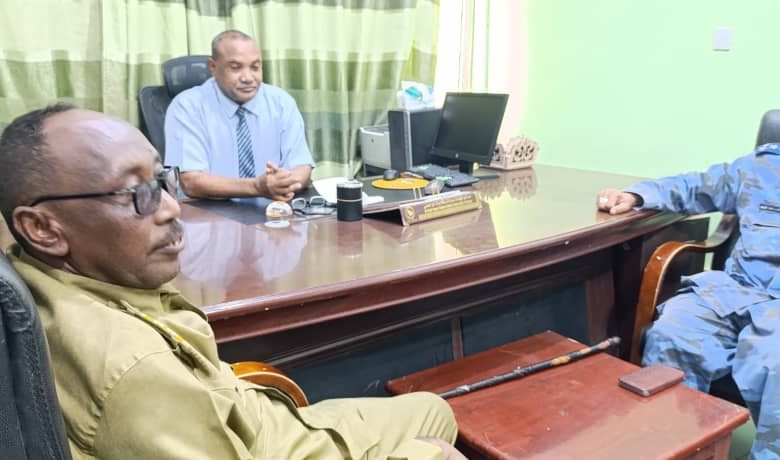Economic
Shendi Bank Manager Denies Money Laundering Allegations and Reveals Minor Counterfeit Cases

Shendi – Rehab Abdullah
The manager of the Agricultural Bank, Shendi branch, Issam Saleh Mohamed Saleh, revealed that the total amount of old currency that had been deposited into the Central Bank of Sudan in Atbara during the currency exchange process reached approximately one and a half trillion Sudanese pounds, in denominations of 1000 and 500 pounds by Thursday.
He mentioned that the amount received from the Central Bank in Atbara was approximately 260 million pounds in the new 1000-pound notes, representing about 17% of the total amount deposited. He noted their ability to cooperate with clients regarding deposits and withdrawals, in line with the Central Bank’s policy of depositing client funds into their accounts, then allowing daily withdrawals of up to 200,000 pounds with no exceptions.
In his statement to a group of journalists in the Shendi Media Association, he said, “We initially allowed withdrawals up to 200,000 pounds, but after realizing that the new currency supply was less, we reduced it to 100,000 pounds, which is noticeable in all banks in Shendi.” He suggested this might align with the state’s higher policy of promoting electronic transactions through banking apps. He also speculated that the shortage in new currency might be due to the unavailability of the 500-pound notes, which would have helped in the exchange, possibly due to the war’s impact on the printing, transportation, storage, and security costs.
He confirmed that there was no suspicion of money laundering but acknowledged a few minor cases of counterfeit 1000-pound notes, which were considered insignificant and occurred among ordinary citizens. He attributed this to the presence of security personnel in the bank monitoring the exchange process, denying any legal action against individuals for possessing counterfeit money. He also mentioned the public’s limited awareness of counterfeit currency and revealed that investigations into new accounts had been conducted.
He assured that the bank would complete the year-end account closures by December 31st, despite the timing of the currency exchange, noting that the currency was printed in June and July of 2024. He stated that it would have been preferable to conduct the exchange before or after December 31st to avoid pressure on bank staff. He explained that they had assigned a team to close accounts while another team handled the currency exchange, as it had become an inevitable task.
Issam emphasized that the demand had been very low after the latest extension, indicating that large sums had already been deposited in the banks, and the remaining cash was relatively small compared to the initial volume. He attributed this to some individuals being away from the banks due to the war or collecting small amounts to deposit.
He confirmed that the halt of the clearing system had caused significant disruption for both clients and banks. He expected the “Soba” alliance to play a significant role in replacing the clearing system, ensuring better service for customers and fairness for banks.
He also affirmed that the currency exchange was a necessary step for economic recovery and that it had been delayed for too long. He noted that the Agricultural Bank differed from others because of its role in financing agricultural seasons and providing fertilizers and seeds.
Issam concluded by expressing confidence that Sudan had the potential to be the “food basket of the world” despite the war, due to its rich resources, including water, fertile lands, minerals, livestock, oil, and agricultural products. He pointed out that Sudan produces 85% of the world’s gum arabic, and he stressed that Sudan’s resources are sufficient for its citizens to live in prosperity, though external forces seek to control them.



